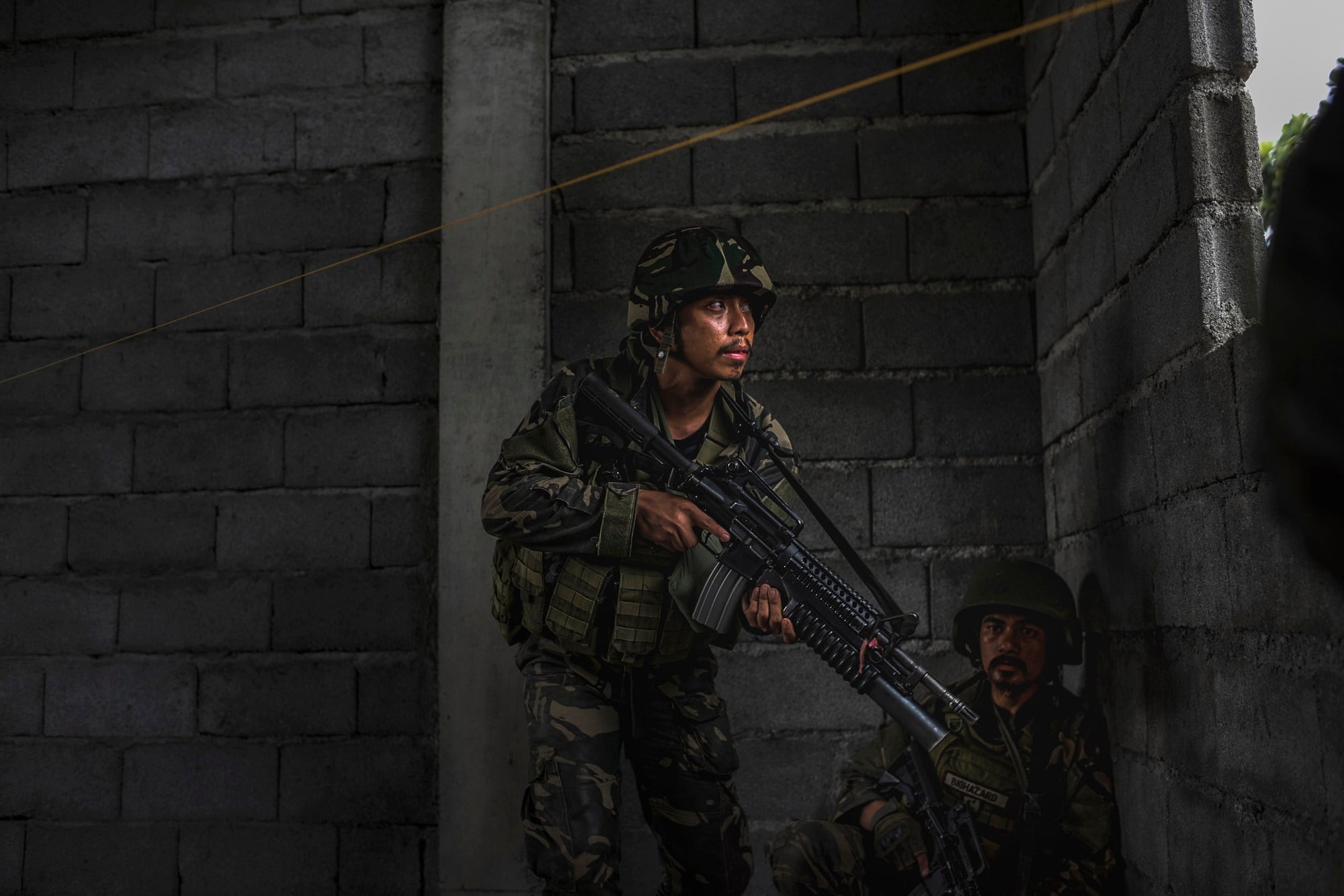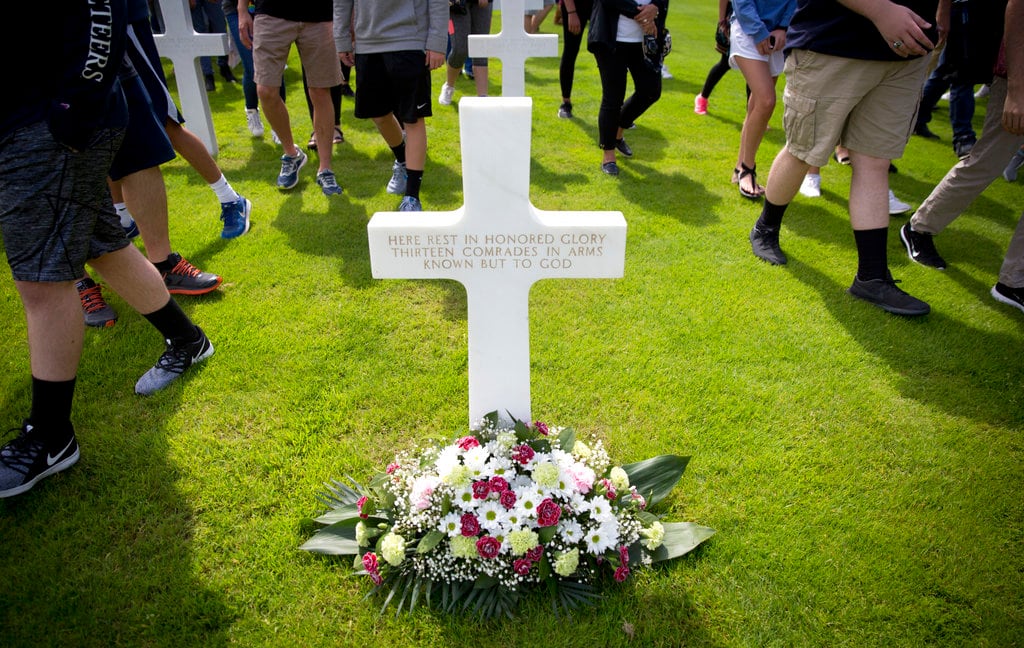MANILA, Philippines (AP) — Two suspected Muslim militant suicide attackers detonated bombs in an army camp in the southern Philippines on Friday, killing three soldiers, two civilians and themselves, military officials said.
Twelve other soldiers were wounded in the "inhumane" attack by suspected Abu Sayyaf gunmen on the headquarters of an army brigade combat team in southern Sulu province's Indanan town, officials said. About 300 newly deployed soldiers were based in the combat camp, they said.
The military has deployed large numbers of troops to predominantly Muslim Sulu to bolster a months-long offensive against remnants of the Abu Sayyaf, which is listed by the United States and the Philippines as a terrorist organization for bombings, ransom kidnappings and beheadings.
Military officials initially provided sketchy details of the noontime attack and refused to confirm that suicide attackers were involved as an investigation was underway. The Associated Press, however, saw an initial military report that blamed two suicide bombers for the deadly assault.
Regional military spokesman Maj. Arvin Encinas later acknowledged two suspected militants detonated the bombs in a rare suicide attack at the camp. Two military officers, who spoke on condition of anonymity because they were not authorized to discuss details of the attack, also corroborated Encinas' account.
Regional military commander Maj. Gen. Cirilito Sobejana called the attack inhumane. "We will intensify our offensives to crush terrorist groups that hamper the stability and development in Sulu," he said in a statement.
One of the militants tried to enter the camp but was accosted by two soldiers at the gate. The militant managed to detonate his bomb, killing himself, the two soldiers who stopped him outside the gate and a third soldier behind the gate, which was damaged by the powerful blast, Encinas and the two military officers said.
"They saw that first suspect but he still managed to detonate the IED he was carrying," Encinas told reporters, referring to an improvised explosive device or homemade bomb.
The second militant dashed into the camp but was shot by other soldiers, who went on alert after hearing the first explosion. He yelled "Allahu akbar" or "God is great" before setting off the bomb that he carried, damaging vehicles in a parking lot, one of the military officers said.
The attackers were young, perhaps age 18 to 20, the officer said, adding it was not immediately clear if they were Filipinos or foreigners.
In addition to the three soldiers and two suicide bombers, two villagers were killed at the scene of the attack, army spokesman Lt. Col. Ramon Zagala said.
Battle setbacks have reduced the number of Abu Sayyaf armed fighters to less than 400 but they have remained a national security threat. They were the main suspects in a Jan. 27 bombing of a Roman Catholic cathedral during a Mass that killed 23 people in Sulu's capital town of Jolo.
The cathedral attack by two suspected suicide bombers sparked the military offensive against the Abu Sayyaf, some commanders of which have pledged allegiance to the Islamic State group.
Abu Sayyaf militants have largely thrived on ransom kidnappings and extortion. although defense officials say they may have received foreign funds, including from the Islamic State group, to finance attacks.
After their last known hostage, Dutch birdwatcher Ewold Horn, was killed by his captors during a clash with troops in May, the militants no longer hold any hostages in their jungle bases in Sulu for the first time in years due to constant offensives and tightened security. That caused the militants to become more desperate, military officials said.





